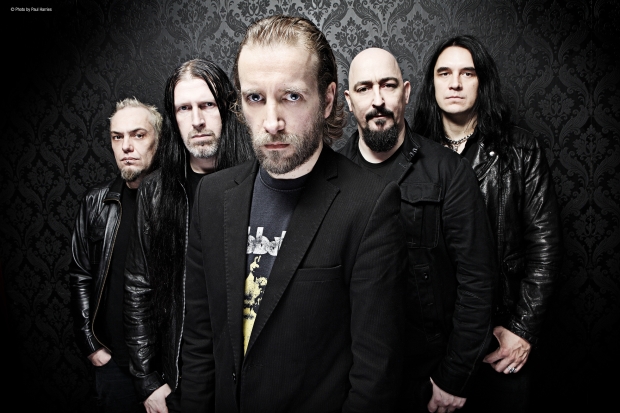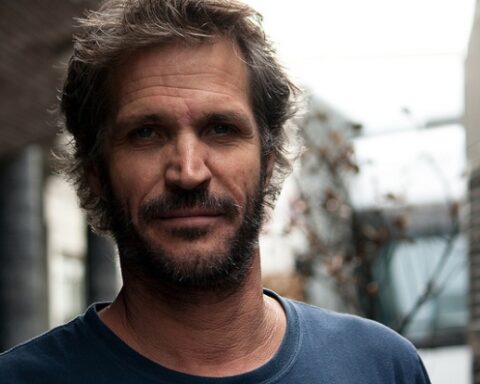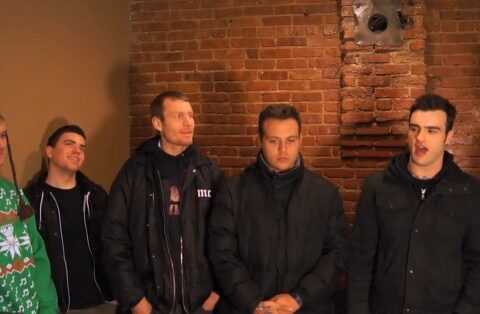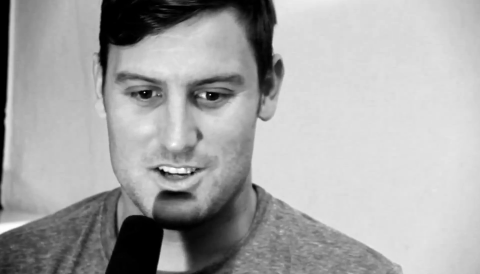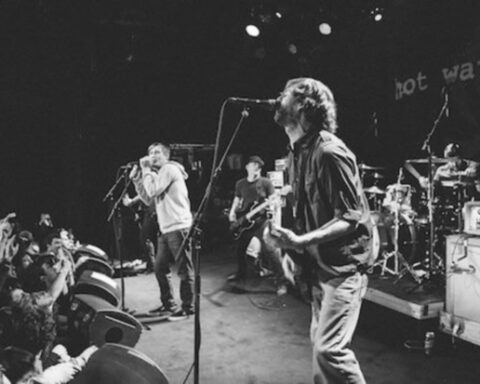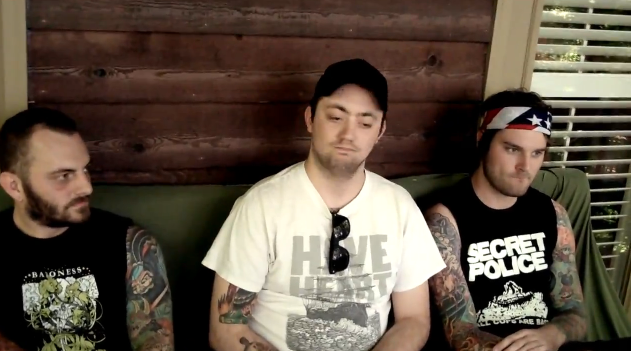Last week, KSSU Loud Rock director Daniel Cordova conducted an interview with PARADISE LOST guitarist Greg Mackintosh.
“Tragic Idol” is the 13th album by the band. Does it feel like it’s been 13 albums or 24 years?
Sometimes yes, sometimes no. Depends on how tired you are, I guess, but I guess overall things go faster and faster as time moves on. For some things, it just seems like, it can seem like yesterday that you saw someone. Like, for instance, we did a festival the other week and a German death metal band called Morgoth was playing. . . And, I haven’t seen them since their supporters in our hometown in 1989, and it’s like we haven’t seen each other. We just talked about the same stuff again. “Oh, you remember this? You remember that?”
Have you guys had any desire to go back to the kind of synthy era? “Host”, or “One Second” or anything like that?
Not of late. Not, in the last few years. We did a few years of kind of experimenting in that side of things and that’s why these days that we can do, sort of, the more doom approach, the doom metal approach with any kind of conviction, because we kind of got all the stuff out of our system. I think if we had carried out with the doom thing the whole time, it had just been going like a coloring box, you know, just like, music by numbers. Some bands kind of get off on that, but we’re not one of them. It gets too boring. You got to — you may as well work on a production line that’s just churning out the same stuff over and over.
Why do you think sticking with 80% of your lineup since 1988 has been so successful? Looking over a lineup, it’s just, you know, been drummer switching out.
Well, I mean if, if [Matthew Archer], our original drummer — if his drumming had been more consistent. He had to go because we were playing big festivals, headlining big festivals, and the nerves start to get to him in front of these huge crowds. If he would have handled that, and his drumming had been more consistent, he’d still be in the band. It would have been 100% lineup, but certain things happen. I think the rest of us just stuck together because we’re friends, before the band, and it was just kind of a hobby. And we still kind of treat it that way. Even though it’s been a career for twenty-odd years, we still treat it like it’s our hobby and we just have fun with it, because the whole point of doing this is fun.
What are your thoughts on, like, your album, in full, right now, can be listened to on YouTube. Easy. And everything you’ve put out. Are you afraid of that because of your paycheck or are kind of into the idea that anyone can get your music, spreading your art.
I think there’s pluses and minuses to it all, really. Personally, I preferred it when there was more mystery that surrounded the whole thing. Where you didn’t know what your favorite band had for lunch or something. I used to look at album covers, you know, I’m and old-ish guy, but I used to look at album covers and wonder what these people are like. There was something kind of good about not knowing. Same with the music. You have to wait for an album on order, and you didn’t know what it was going to be like. You had no idea, and you had to wait a couple weeks for it to come to you. Then you get it in the post and you’re like, “Whoa!” looking through all the artwork and stuff. I miss all that. That’s all been lost. That’s why vinyl’s coming back a little bit. It’s a collectable and a CDs not really a collectable. So you get your people who will download your stuff off the digital downloads and that, who don’t really care about packaging, who just want a track from this band and a track from that band. And then you have your collectors and people who like physical products and like to have the whole thing. Because artwork and stuff like that has always been very important to me. When I was growing up, all the albums I liked, they thought about the whole thing and how it was all put together with the music, and I still kind of aspire to that.
The rest of the interview can be read here.



